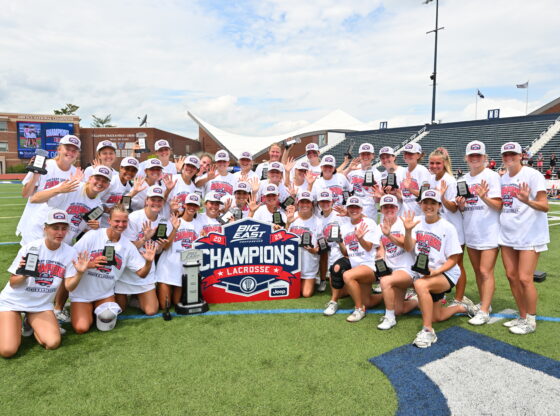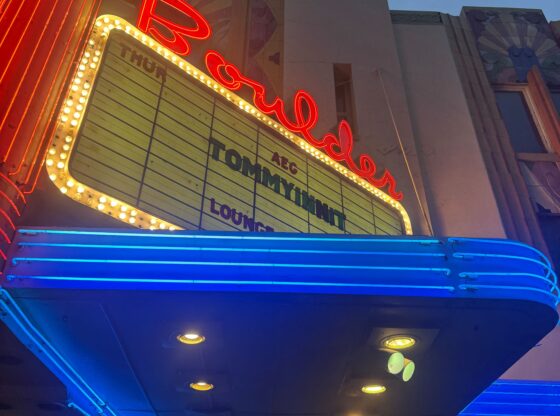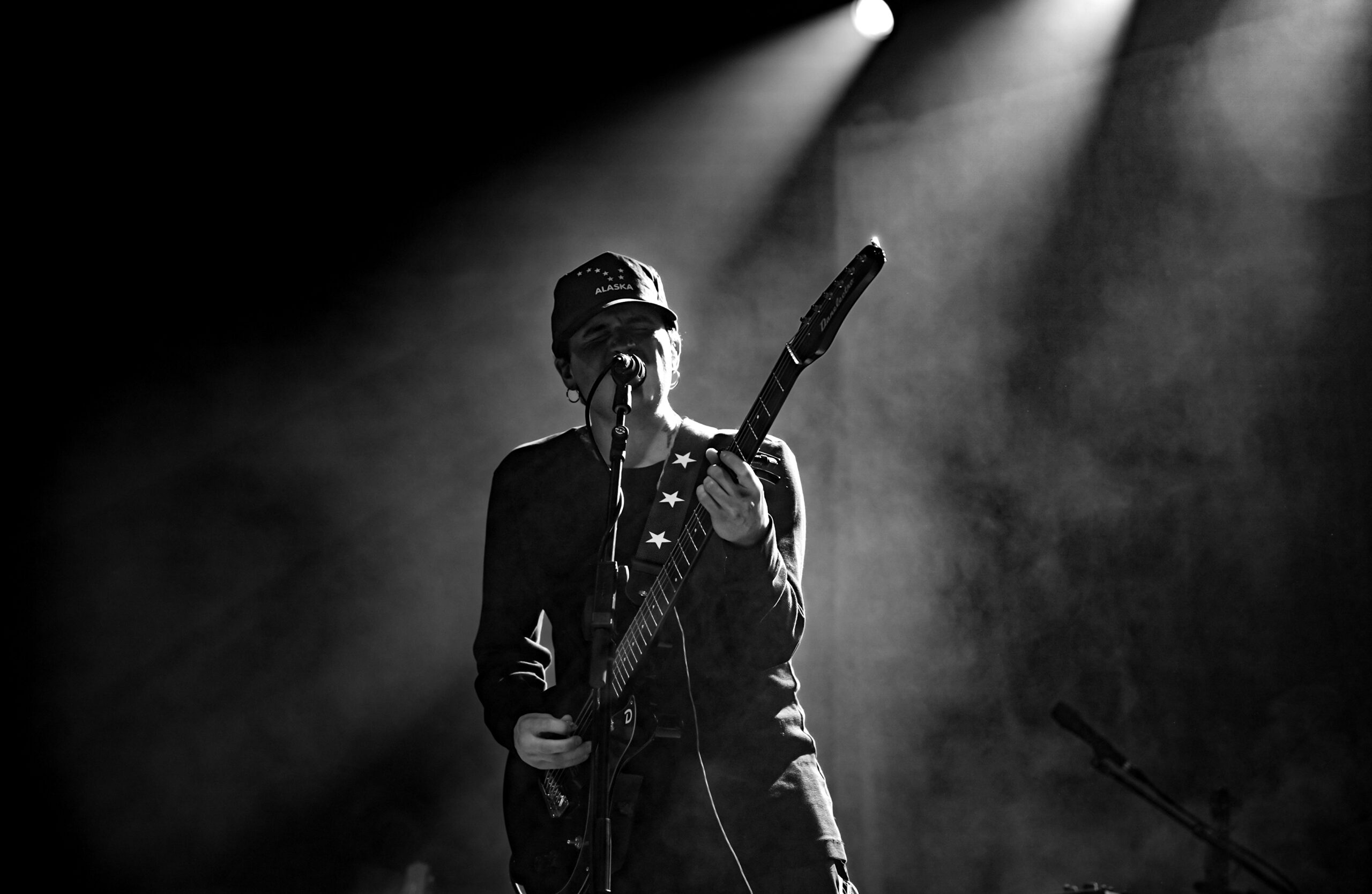“Welcome to the Homo No Mo Halfway House,” said Chad, the first character of Peterson Toscano’s one-man comedy, on Monday night.
“This is a Christian, residential, 12-Step program to help men overcome their addiction to homosexuality and compulsive sexual behavior.”
Toscano performed “Doin’ Time in the Homo No Mo Halfway House-How I Survived the Ex-Gay Movement” in Lindsay Auditorium in conjunction with HIV/AIDS Awareness Week. DU Pride and the Center for Multicultural Excellence sponsored the event.
The show is based on Toscano’s life experiences as a survivor of the ex-gay movement and the ex-gay residential program in Memphis, Tenn., where he lived for two years. The characters he portrays in the show are based on people he had interacted with while in the program.
He has been performing the one-man act for two years in 21 states, and has just returned from a tour in Europe and West Africa.
Dennis Barrett, an associate professor in the Department of Biological Sciences, discovered Toscano about a year ago and contacted DU Pride to arrange his visit to DU.
“I recognized a lot of human truths that seemed useful for everyone,” said Barrett. “I admired his masterful use of humor as a teaching tool, but the humor is gentle and calculated to be inclusive; he doesn’t indulge in ridicule. It’s a delicate balance that I think he does instinctively and really well.”
The first character in the one-man performance is Chad, a very stereotypical gay man that leads us through the phases, steps and boundaries of the program as the tour guide of the Homo No Mo Halfway House.
Because he is the tour guide, we see him regularly throughout the show, and toward the end see a very soft and tragic side of his generally jovial persona.
He reflects on his relationship as a child with his brother Tad, whom he was very fond of.
As a teenager, Chad was told by his parents that his brother, who was also gay and several years older, was very ill because of the lifestyle that he chose to lead, a consequence of his sins.
This was something that troubled Chad, as he could not imagine that someone as kind and good-natured as his brother could ever deserve to die.
We also hear the character of Chad refer to Peterson Toscano, whom he sees as a failure of the program after an encounter at a mall.
“I asked him, ‘Is it true, these terrible rumors that I hear that you are a practicing homosexual?'” he said. “And he said to me, ‘No, of course not. I’ve actually gotten pretty good at it- I don’t need to practice anymore!”
Tex, who is married to a woman and has three children, is another participant in the program. Toscano’s transition from Chad to Tex was so seamless that it startled the audience.
Tex’s thick Texas drawl was very masculine in comparison to the previous character’s stereotypical feminine tone.
Tex, who has a foot and shoe fetish, proceeds to tell his story of compulsive, anonymous, weekly sexual encounters in the church bathroom with a deacon during his stay at the house to “straighten out.”
The scene quickly changes again as we are introduced to Pete from New York, whose character is based on Toscano’s father.
During a family-and-friends weekend for residents of the program, Pete is troubled by the way in which his son and others are treated, and refers to the church as a spaceship.
“As soon as they sat us down in a circle and started doing their therapy crap, I realized that we just got abducted by aliens,” he said.
Because the ex-gay movement is based on religion, Toscano found it critical to create a character from the church.
He revealed Rev. Meadows, a provocative minister who reads sermons but questions their meanings.
“‘Jesus wept,'” he read. “That is the shortest verse in the Bible, and when I read it, I wonder, ‘Why?’ Was Jesus just a tender soul easily moved by the tears of those around him?”
Eventually, we are introduced to Peterson Toscano, as himself. He describes his long struggle to change from a gay to a straight man through counseling, the church and even an exorcist.
He also discussed his time at Love in Action, the residential home that he graduated from in 1998. Six months later, he came out as a fully-realized homosexual.
“You cannot make a fish fly,” he said. “You can chuck it across the room, and for a moment, just a moment, it will really believe it is flying, until it smacks its head against the wall.”
There are over 100 ex-gay programs in the United States today. Though Toscano’s stay at a residential program was voluntary, he spoke of minors that are placed involuntarily with people that have problems with bestiality or pedophilia, and are made to feel that their homosexuality is on an equal level.
“This was a really good show,” said Megan Sullivan, senior. “It presented the issue very well. The main character drew on stereotypes, which was disturbing, but it helped tell the story. The acting was superb.”
“I thought the turnout was good,” said Emily Hungerford, president of DU Pride. “It was great to see students and people from the surrounding community.”











